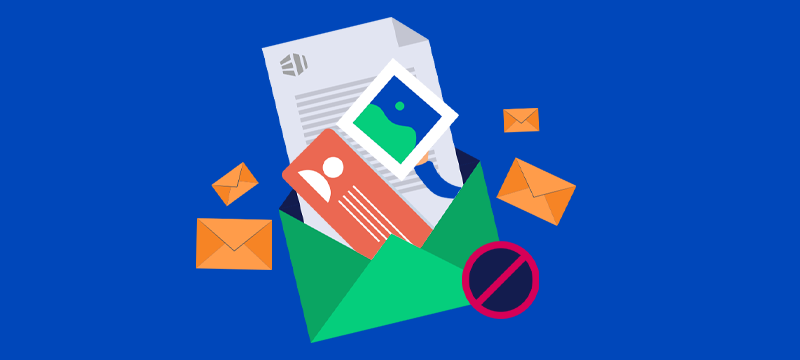While email has become an indispensable tool for businesses and individuals alike, our reliance on it makes it a prime target for cybercriminals seeking to exploit vulnerabilities and gain unauthorised access to sensitive data. In this article, we will look at some of the strategies you can implement to protect your business against email-related data breaches.
Strong passwords
A strong password is the first line of defence against unauthorised access to your company’s email accounts. Ideally, you should require the use of strong passwords and ensure that they contain a combination of uppercase and lowercase letters, numbers and special characters. Additionally, you should enforce regular password changes and prevent the reuse of passwords across different platforms.
For more robust protection, you should also require users to use multi-factor authentication (MFA). This adds an extra layer of security by requiring users to verify their identities through a second form of authentication, such as a one-time password or biometric authentication.
Educate users about phishing attacks
Phishing attacks remain one of the most common methods used by cybercriminals to gain unauthorised access to email accounts. These are a deceptive form of attack where emails impersonate a legitimate organisation or a member of staff in order to trick individuals into revealing sensitive information, such as login credentials, banking information or other personal details.
Educating users about the dangers of phishing and how to identify and avoid suspicious emails is crucial. Train staff to scrutinise email addresses, double-check links before clicking and be wary of unexpected email attachments. Some companies even implement simulated phishing campaigns to understand where vulnerabilities in the company lie.
Explore Further : How to Protect Your Business from Phishing
Use email SSL certificates
Using an email-signing S/Mime certificate is essential to protect the confidentiality and integrity of sensitive information transmitted via email. Similar to SSL certificates used on websites, S/MIME is a protocol used for securing email communications. It provides end-to-end encryption and digital signing of email messages, ensuring that only the intended recipient can decrypt and read the message and that the message has not been tampered with during transit. Additionally, the certificate is linked to your identity and email addresses, ensuring that the recipient knows that the email was genuinely sent by you and is not a phishing email.
Advanced spam and malware filters
Spam emails often serve as a gateway for malware, phishing attempts and other malicious activities. To protect your business against these, you should deploy robust spam filters that can identify and block suspicious emails. These tools not only remove tons of unwanted spam messages; they also reduce the risk of users falling victim to phishing attacks and scan email attachments and links for potential threats, preventing malware from infecting your network through email channels.
For smaller businesses, solutions like SpamExperts can be a cost-effective way to cutting spam and removing phishing and malware threats. For larger organisations, Mimecast is an enterprise-level solution consisting of anti-spam and antivirus filtering, data leak protection, archiving and continuity protection. It is compatible with Office 365, Exchange and most other mail servers.
Data loss prevention
Data loss prevention (DLP) solutions, like Mimecast mentioned above, can help identify and protect sensitive information from leaving your company via email. By implementing DLP measures, you can create policies that automatically detect and prevent the transmission of confidential data, such as financial records or customer information, through email channels. This acts as an additional layer of defence against accidental or intentional data breaches and can help ensure compliance with regulations like GDPR.
Backup and archive emails
Besides backing up your website and data, it is also crucial to regularly back up and archive your emails to ensure that you have a secure copy of your company’s communication history. In the event of a data breach or loss, you can quickly restore your emails and minimise any potential damage. At the same time, this prevents wrongdoing members of staff from permanently deleting emails they should not have sent. Implementing an automated backup solution that securely stores email data in off-site locations or cloud-based platforms can provide an added layer of protection against data loss or corruption.
Conclusion
Securing your email systems and protecting against email-related data breaches requires a comprehensive approach that includes strong password policies, staff training, email encryption, spam filters, DLP measures and data backups. By implementing these strategies, businesses can significantly reduce the risk of falling victim to cybercriminals and ensure the confidentiality, integrity and availability of their sensitive information.
For full-featured business email hosting, with spam and virus protection included, visit our Email Hosting page.



